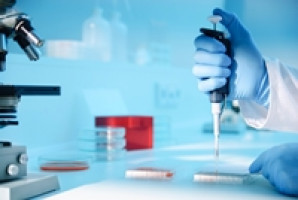
New results for higher dose level cohorts of the investigational study REGN5458 (BCMAxCD3) bispecific antibody, which were presented in an oral session at the 2021 American Society of Hematology (ASH) Annual Meeting in Atlanta, GA, show a 75% response rate at the highest dose levels studied in patients with heavily pretreated multiple myeloma.
The new results from the Phase 1 portion of the Phase 1/2 trial in patients with relapsed/refractory multiple myeloma found a 51% overall response rate (ORR) across all dose groups, rising to 75% in patients who received higher doses of REGN5458 (200-800 mg).
Among patients who responded across all dose groups (3-800 mg), there was a 90% probability of being event-free (i.e., alive without disease progression) 8 months from the time of response.
"Patients with multiple myeloma often face a long and challenging journey, with most becoming refractory to multiple lines of therapy over time," said Jeffrey Zonder, M.D., Professor of Oncology at the Karmanos Cancer Institute, MI, and a trial investigator. "Today's REGN5458 data show promising response rates, particularly at the higher dose levels, in patients with a high disease burden and highly refractory disease who otherwise would have very limited options available."
REGN5458 is a bispecific antibody designed to bind to BCMA on multiple myeloma cells and the CD3 receptor on T-cells in order to bridge them together and activate T-cells to kill the cancer cells.
It is currently being assessed in the potentially registrational Phase 2 portion of the trial, which is expected to complete recruitment in 2022.
In results presented at ASH, 73 patients were treated with REGN5458 doses ranging from 3-800 mg for up to 21 months at the time of data cutoff.
Patients had received a median of 5 prior lines of therapy, with 38% (n=28) being penta-refractory and 90% (n=66) being refractory to the last line of therapy.
The ORR was 75% at the highest dose levels (200-800 mg, n=18/24), and 51% among all enrolled patients (n=37/73).
Most responses occurred within the first month of treatment and deepened over time.
Among responders across all dose groups:
8 months from the time of response, there was a 90% probability of being event-free (95% CI: 73%, 97%), defined by the absence of disease progression or death.
The estimated median duration of response had not yet been reached at the time of data cutoff.
Responses occurred rapidly, usually within the first month of treatment, and continue to deepen with longer treatment; the higher dose groups currently have substantially shorter follow up.
The safety profile was generally consistent across all dose levels.
Cytokine release syndrome (CRS) was reported in 38% of patients (n=28), the majority of which were Grade 1 (n=25), with no cases >Grade 3.
The other most common treatment-emergent adverse events (TEAEs) were fatigue (n=33), pyrexia (n=26), nausea (n=24) and anemia (n=23).
The most common >Grade 3 TEAEs were anemia (n=17), neutropenia (n=16), lymphopenia (n=14), thrombocytopenia (n=10) and pneumonia (n=9).
There were 5 deaths in the trial, all due to infection; none were considered related to the underlying disease by investigators.
"In multiple myeloma, the highest treatment response rates are typically seen earlier in the course of the disease, using multi-drug regimens. It is very encouraging that we observed a 75% response rate with higher doses of REGN5458 monotherapy in patients with more advanced disease," said L. Andres Sirulnik, M.D., Ph.D., Senior Vice President, Clinical Development, Hematology at Regeneron. "This adds to the growing body of encouraging data across our investigational CD3 bispecifics, supporting the continued development of this class across a diverse range of blood cancers."
REGN5458 is currently under clinical development and its safety and efficacy have not been fully evaluated by any regulatory authority.
Source: Regeneron
We are an independent charity and are not backed by a large company or society. We raise every penny ourselves to improve the standards of cancer care through education. You can help us continue our work to address inequalities in cancer care by making a donation.
Any donation, however small, contributes directly towards the costs of creating and sharing free oncology education.
Together we can get better outcomes for patients by tackling global inequalities in access to the results of cancer research.
Thank you for your support.